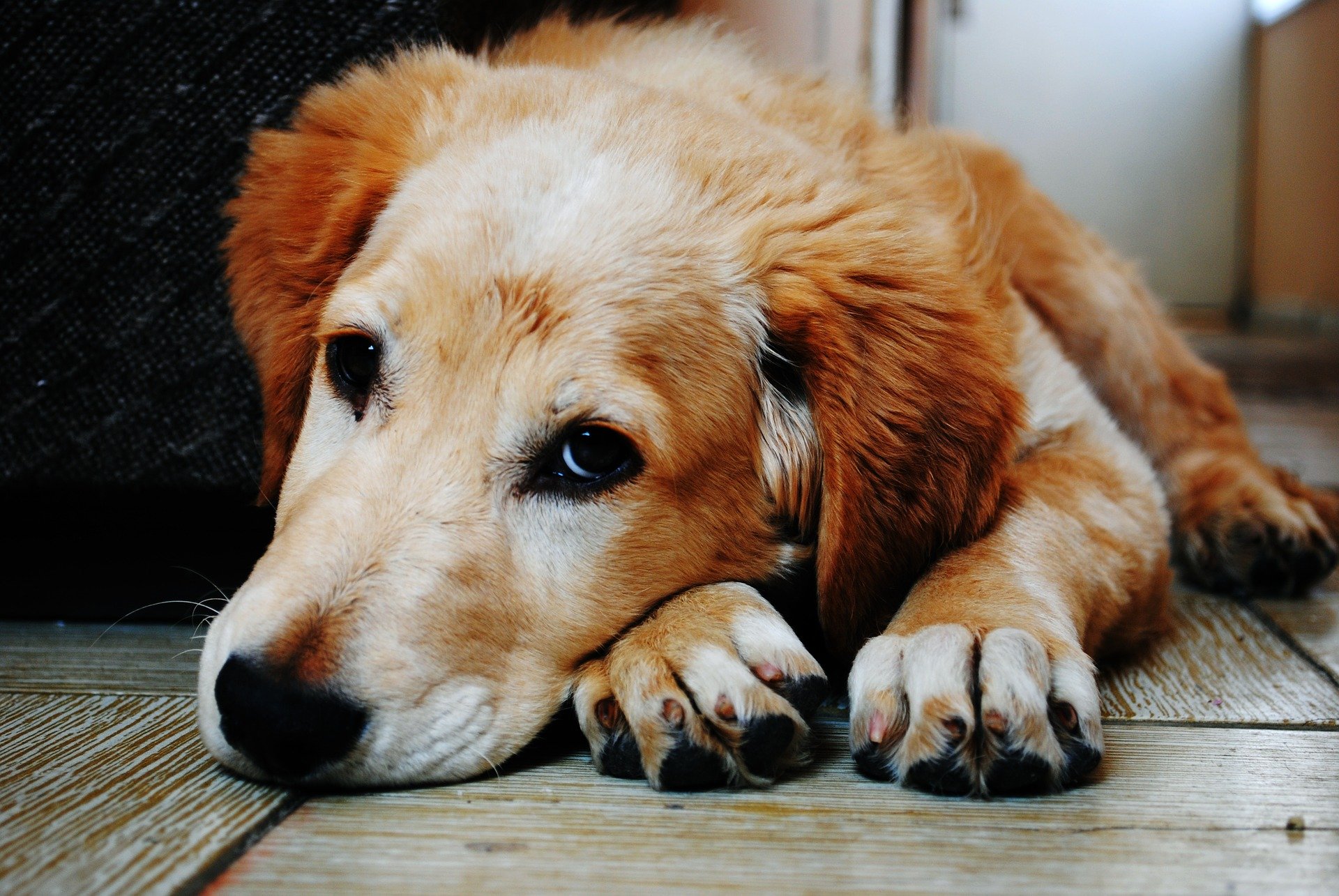South San Francisco, CA October 12, 2021 by Allie Clevenger, ESC

What It Is
Separation anxiety is best described as the stress felt by a dog when their family/owner leaves them alone. While there are varying levels of stress and most dogs aren’t exactly fond of their owners leaving them, some dogs experience this to an extreme. While it may not sound serious, it is. An estimated 20-40% of dogs suffer from separation anxiety, but fortunately, there are ways to alleviate their stress.
Dogs may start exhibiting stress and anxiety while watching their owner prepare to leave or wait until they are actually left alone to show signs of distress.
Why It Happens
There is more than one reason why a dog may develop separation anxiety. Dogs who are rescues are in a category that shows a higher rate due to their change of ownership. Here are some other reasons why this condition may develop:
- The loss of a member of the family
- Moving from a shelter or foster home to a new home
- When they are left alone after they are used to being with their people (post-pandemic)
- A change in the normal schedule or routine
- Being abandoned
Dogs are pack animals and they don’t just desire a connection, they need it. Dogs tend to bond to their owners more deeply than other animals and are social and fond of companionship. They notice an absence of the people they are surrounded with on a regular basis. They feel loss, and they feel sad when they aren’t with their loved ones or are taken away from them.
Symptoms
While these symptoms don’t necessarily mean that your dog has severe separation anxiety, they are signs to look out for should you notice they are in distress. A normal behaved dog that suddenly starts misbehaving could have developed this condition.
- Potty trained dogs that begin to urinate and defecate in the home while the owners are away or when they are preparing to leave. Sometimes they may eat their excrement afterwards.
- Barking, whining or howling persistently.
- Destruction of bedding, door frames, windows, draperies or blinds or other household items, they normally would not touch. Digging holes in carpet.
- Pacing back and forth or turning in circles repeatedly
- Attempting to escape from cages, rooms or other places they are confined to. This is why you will see destruction near windows or doors – the dog is trying to get to their owner.
- Excessive panting or drooling
It is wise to rule out any medical problems for sudden soiling of furniture and floors. Take steps to ensure that what they are experiencing is caused by the stress of separation. Always consult your veterinarian. There could be reasons for incontinence due to:
- Medications or medical issues
- Urination due to becoming excited or scared
- Not being completed house trained
- Marking territory
Destruction of property could also be caused by boredom – ensure they are getting enough exercise or that they aren’t teething due to their age. Puppies often find shoes or furniture to chew on when you aren’t looking!
How You Can Help
The first step is to consult your veterinarian. Once you have concluded that separation anxiety is the issue, there are several treatments that are available:
- Medication
- Desensitization and counterconditioning
- Puzzle toys to distract them and provide mental stimulation
- Behavior training with a certified behaviorist
- Take the dog with you when appropropriate
- Doggy daycare or a sitter
- Creating a safe place for the dog with comforting items such as their favorite toys and an item of clothing that smells like you
What Could Make It Worse
Punishment for anxiety based actions will exacerbate the condition, not remedy it. Try to look at the situation from your dog’s eyes.They just wanted to be with you and scratching or chewing on the door jamb was their way of trying to accomplish that. Punishment only makes this situation worse.
Appropriate exercise will make every dog better – it keeps their mind sharp and tires them. When possible try to exercise your dog through a long walk or extensive play session before you leave the house. This way, they may spend part of the time you are away snoozing instead of being anxious for your return. Just remember, you’re their entire world and they can’t wait for you to come back to see them!